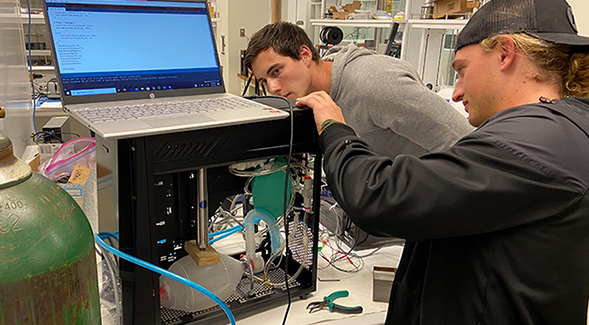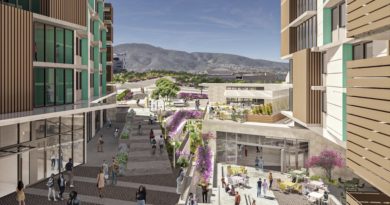Daily Business Report-April 16, 2020
SDSU mechanical engineering graduate students Jack Lucas and Tyler Lestak work on the assisted breathing device in Professor Kevin Wood’s interfacial design lab. (Photo: Kevin Wood)
Engineers answer national challenge,
create assisted breathing device prototype
Extreme respiratory distress is one of the complications the coronavirus (COVID-19) produces in very ill patients, when they struggle to breathe on their own and need to be connected to ventilators.
Ventilators are a device of last resort, but with the rapid spread of the virus and the increasing number of critically ill patients, the demand for them is escalating at the same time that hospitals are finding they are in short supply.
When the U.S Department of Defense announced a design challenge in March in response to COVID-19 for easy-to-make, low-cost ventilators, Kevin Wood was one of many researchers who responded.
The assistant professor of mechanical engineering at San Diego State University rallied two of his master’s students, Jack Lucas and Tyler Lestak, and got to work. Their goal: assess what was already out on the market, and design a device that would be affordable but would not require manufacturing of new parts.
What they came up with is a low-cost mechanical assisted breathing device that can be easily assembled using readily available, off-the-shelf parts and common medical supplies.
Initial testing has been completed and the researchers are currently working on further testing with collaborators.
“Professor Wood and his team have shown great ingenuity and passion with their development of this initial prototype,” said Stephen C. Welter, Vice President of Research and Graduate Dean. “We anticipate collaborating with health professionals for further testing and development.”
______________________________________

Online program in social work, first of its kind
in California, coming to MiraCosta College
MiraCosta College this fall will become the only community college in California to offer an associate degree for transfer and a certificate of achievement in social work and human services that is completely online.
The program also will address regional workforce needs. According to the state Employment Development Department, the number of openings for social workers in San Diego County is expected to grow by 400 annually in the coming years, with hourly wages in the $25–$33 range. According to the federal Bureau of Labor Statistics, child, family, and school social workers in the region are earning an average of more than $57,000 annually and social workers in the health care field are earning nearly $70,000 per year on average. Nationally, overall employment of social workers is expected to grow 11 percent from 2018 to 2028.
Two new online courses are being created: Introduction to Social Work and Human Services and Fieldwork for Social Work and Services. In addition, various sociology, psychology, and other online courses will be reconfigured, thus preparing students with the specific job knowledge and skill set needed for a Social Worker I job requirements as posted by the San Diego County Department of Social Services. Those interested in seeking further career opportunities can opt for the associate degree for transfer that can lead to a bachelor’s or master’s degree in social work or a related field.
Because the new Online Social Work and Human Services Program will implement various zero-cost textbooks and open educational resources, students would pay a fraction of what they are now paying on textbooks and class materials.
MiraCosta College officials anticipate enrollment in the program to reach its capacity of 40 students by fall 2021.
______________________________________
Michigan governor thanks Gavin Newsom
for loaning 50 ventilators to the state


Gov. Gavin Newsom sent Michigan 50 ventilators on loan from the State of California inventory as both states continue to fight COVID-19. The ventilators were to arrive in Lansing on Wednesday.
“From the beginning, Governor Newsom has taken swift and aggressive action to protect California families from the spread of COVID-19,” said Michigan Gov. Gretchen Whitmer. “He understands that when it comes to fighting this virus, we are all on the same team, and must work together to protect as many people we can. These ventilators will save lives and help our health care system treat more COVID-19 patients here in Michigan. I’m proud to work with Governor Newsom and everyone else who can step up to keep families safe.”
“As California continues to flatten our curve in the fight against COVID-19 we have a moral and ethical imperative to help our fellow Americans. We are pleased to be able to assist Governor Whitmer and the people of Michigan who are rising to meet the moment in their own fight to protect public health and safety,” said Gov. Newsom.
______________________________________
General Atomics and affiliates unite
in fight against COVID-19
General Atomics (GA) and its affiliates are leveraging their expertise in manufacturing and innovation to meet the urgent needs of our communities. At GA facilities in San Diego and across the country, test kit development, 3D printing of Personal Protective Equipment (PPE) and ventilator component manufacturing are underway to assist in the fight against COVID-19 at a local, state and national level.
- GA, Diazyme is offering a COVID-19 Antibody test from blood draws (serum or plasma).
- Diazyme has also notified the FDA of a rapid COVID-19 Antibody test. This point-of-care test requires only a single drop of blood and provides results within 10-15 minutes.
- GA, Electromagnetic Systems (GA-EMS) group is pursuing component manufacturing and integration services to help scale up production of ventilators. With extensive manufacturing facilities located across the U.S., GA-EMS provides a convenient, U.S.-sourced option to help companies rapidly increase their production capacity to meet the high demand for critical medical equipment.
- GA-EMS has also tested their first generation mechanized bag valve mask. The system would fit into a backpack and could replace human interaction with the bag enabling more controlled and repeatable tides for infants, children and adults.
- GA-EMS, GA-Energy group, and GA-ASI adapted their prototyping and production capacities to produce 3D-printed face shields to meet local demand for PPE.
- GA-EMS is accelerating the development schedule of its MATCHBOX Point-of-Care molecular diagnostic platform responding to the growing need for COVID-19 testing. MATCHBOX is expected to have the capability to test and diagnose for a wide range of known respiratory infections, including COVID-19, within 30-60 minutes using a single patient sample using a portable point-of-care instrument.
______________________________________
Loss of smell and taste validated as COVID-19
symptoms in patients with high recovery rates
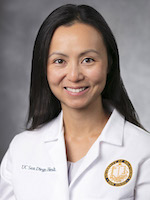
Loss of smell and taste has been anecdotally linked to COVID-19 infections. In a study published April 12, 2020 in the journal International Forum of Allergy & Rhinology, researchers at UC San Diego Health report the first empirical findings that strongly associate sensory loss with COVID-19, the respiratory disease caused by the novel coronavirus.
“Based on our study, if you have smell and taste loss, you are more than 10 times more likely to have COVID-19 infection than other causes of infection. The most common first sign of a COVID-19 infection remains fever, but fatigue and loss of smell and taste follow as other very common initial symptoms,” said Carol Yan, M.D., an otolaryngologist and head and neck surgeon at UC San Diego Health. “We know COVID-19 is an extremely contagious virus. This study supports the need to be aware of smell and taste loss as early signs of COVID-19.”
______________________________________

Port of San Diego approves Sweetwater
Park Coastal Development Permit
As part of the transformation of the Chula Vista waterfront on San Diego Bay, the Port of San Diego Board of Port Commissioners has approved a Coastal Development Permit (CDP) for the future Sweetwater Park. Planned for the northern portion of the Chula Vista waterfront near E Street and Bay Boulevard, Sweetwater Park is envisioned as a meadow-type open space to showcase the unique natural assets of San Diego Bay, encouraging passive recreation to complement the adjacent Sweetwater Marsh National Wildlife Refuge.
“The parks that are being designed and planned, including Sweetwater Park, will give us the long-awaited, enhanced shoreline recreation and active commercial harbor we’ve wanted for quite some time in the South Bay,” said Chair Ann Moore, Chula Vista’s representative on the Board of Port Commissioners. “Sweetwater Park, specifically, will allow us to appreciate nature on our bayfront, while also protecting the wildlife habitat, species, and our precious coastal resources.”
Sweetwater Park is one of two future parks currently in the design phase for the Chula Vista Bayfront Project. Sweetwater Park, along with Harbor Park, will account for more than half of the new park space planned for the Chula Vista waterfront.
The parks design teams are KTU+A and Petersen Studio.
______________________________________
SDSU to reimburse more than
$24 million to students
San Diego State is estimated to reimburse more than $24 million for housing, meal plans and parking permits after the coronavirus pandemic forced many spring semester operations to be cut short, university officials said.
Of the $24 million, the university said it estimates $19.1 million to be returned to students in housing refunds, $5.2 million for meal plans and $125,000 for parking permit reimbursements.
______________________________________
Free Health Care Directive services
offered to first-responders
In the wake of the COVID-19 pandemic, The Lawyer in Blue Jeans Group is announcing “free health care directives and powers of attorney” to first-responders (medical on the front lines, fire and law enforcement) to help people protect themselves, their families, and their estate.
The Lawyer in Blue Jeans Group will prepare, for each interested first-responder and their spouse, an Advance Health Care Directive and Durable Power of Attorney for Finances. The documents will be prepared securely online and at no cost. Once the documents are completed by the Lawyer in Blue Jeans Group, the first responder will need to execute the documents in front of a notary.
The online component makes this quicker for those first-responders working the long hours they are doing to help those in need. There are no strings attached. It is a pure gesture to help those who have selflessly helped us all. “This is our way of giving back to help our heroes protect themselves, their family and estate,” said Justin Isaac, managing attorney for the group.
All first-responders have to do is go to www.LawyerinBlueJeans.com/ or call 619-683-2545. Interested first-responders will need to take a screen shot of their badge/ID (which can be simply done with a camera phone) and submitted when applications are filed.
______________________________________
Sundt Construction promotes 5 in San Diego
Sundt Construction Inc. has promoted Kevin Angelini and Andrew Sullivan to assistant project managers, Casey Beck to mechanical, electrical, and plumbing (MEP) manager, Lamia Porter to lead estimator and Elizabeth Tague to estimator in its San Diego office.
Angelini brings over 30 years of experience in the construction industry. He joined Sundt in 2013 as a project engineer on the Kings County Courthouse project in Hanford, Calif. In his new role, he is responsible for coordinating work in the field among subcontractors, developing and maintaining relationships with the owners and design teams and performing safety inspections.
Sullivan has been in the construction industry for over 15 years. He holds a bachelor’s degree in construction engineering from California State Polytechnic University, Pomona.
Beck has been with Sundt for a year and has worked on various projects across the state supporting the entire district as an MEP specialist. He earned his bachelor’s degree in construction management from the University of Nebraska-Lincoln and holds his OSHA 30 certification.
Porter has been in the construction industry for over five years. While at Sundt, she worked as an estimator on numerous education projects including San Diego Unified School District’s Emerson Bandini project and the California State University-Fullerton student housing project.
In five years at Sundt, Tague has worked on various projects throughout the state. She earned her bachelor’s degree in business management from the University of Phoenix.
______________________________________
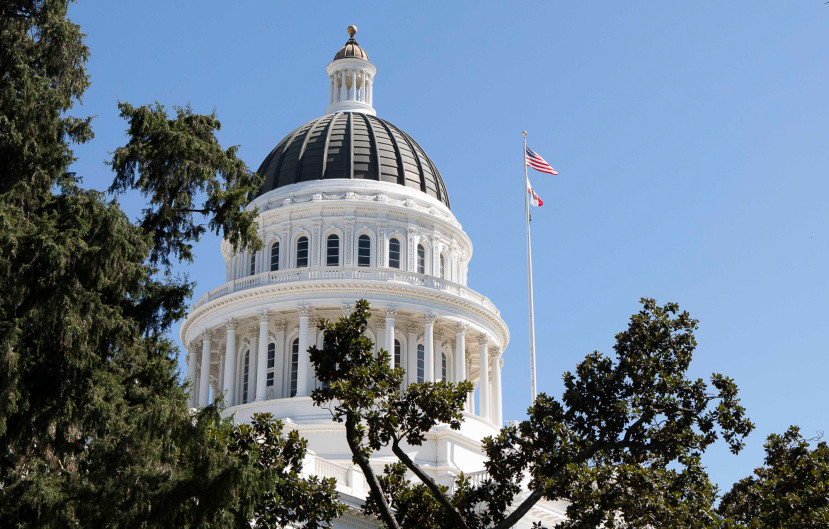
Commentary by Dan Walters | CalMatters
Toilet paper short, food abundant
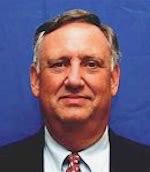
The first few days of the coronavirus crisis revealed that the veneer of civilization may be thinner than we assumed.
Americans quickly stripped supermarket shelves of toilet paper, paper towels and other household commodities. The panicky, almost riotous, invasion of shoppers even moved one Sacramento grocery chain to hire off-duty police officers to stand by and keep order.
Several weeks later, toilet paper is still in short supply, but stores still have adequate, if not overly abundant, stocks of a much more important commodity — food. Farmers, farmworkers, truckers, food processors and grocers have continued to do their vital work, often at the personal risk of becoming infected.
What would happen were the situations to be reversed, with shelves of food empty while those with toilet paper still stocked? It would get very ugly very quickly and history tells us that the survival instinct would kick in and other commodities folks also have been stockpiling — guns and ammunition — would come into play.
That scenario, thankfully, is highly unlikely to occur, but we should be aware that the incredibly complex system that delivers foodstuffs to stores and then to our tables is feeling the strain.
The closure of restaurants, schools and other commercial purchasers of food is a heavy financial blow to everyone in the system. Farmers are plowing up fields of lettuce and other fresh produce for a lack of workers to harvest them, and customers to buy what they harvest. Dairy farmers still must milk their cows, but many are dumping what they produce due to sharply reduced demand not only for fluid milk but cheese and other dairy products too.
California is, as everyone should know, the nation’s top agricultural producer, but we have often tended to take that fact for granted. In certain circles — especially among environmental and social justice activists — farmers are dismissed as greedy despoilers. They wrongly imply that there’s no need for large-scale industrial agriculture, and that small-scale organic farmers can meet our needs.
This crisis should tell us otherwise and whenever it ends, we should emerge with a new appreciation for those who grow, harvest, process and deliver our food — and show that regard in tangible ways.
We should end the decades of bickering over water and build the new storage and conveyance projects that will give farmers what they need to maintain and enhance production as well as meet the demands of families and other water users.
We should honor the men and women who work in the fields while most of us shelter in place to avoid infection. They should be fairly paid for performing the difficult and often hazardous tasks that put food on our tables, even if it means higher retail prices.
We should, as with water, end the decades of bickering over immigration and provide undocumented immigrants — as many as three million in California alone — who work in the fields, in construction and in myriad other important industries a dignified pathway out of the shadows and into legalized status and citizenship.
Concurrently, we should make it easier and more lucrative for foreign nationals who wish to work seasonally in California agriculture to come here. It’s shameful that President Donald Trump’s administration is contemplating a reduction in guest worker wages to ease the financial burden on farmers. That sends precisely the wrong message because a shortage of reliable labor is one of agriculture’s biggest headaches.
Some say the coronavirus crisis changes everything. It should change our complacent and sometimes hostile attitudes about agriculture.

